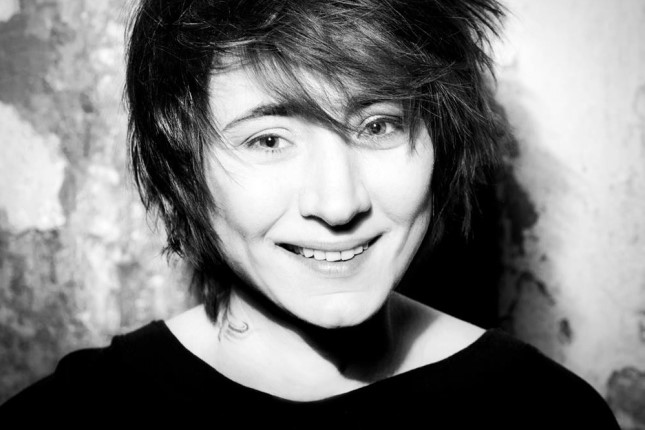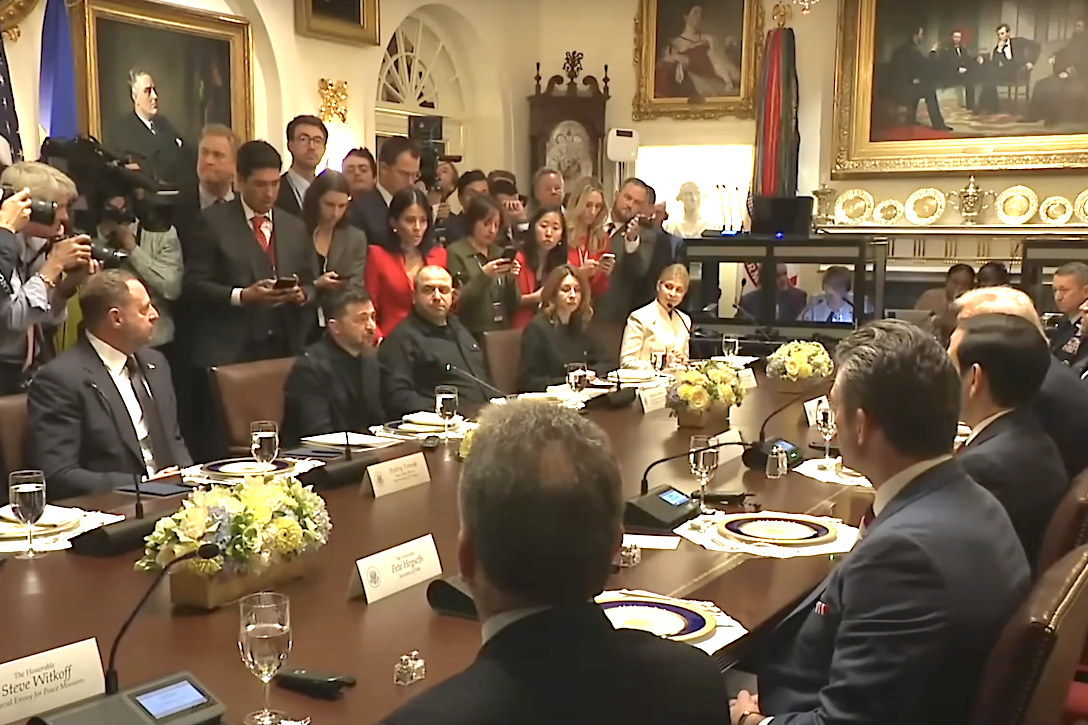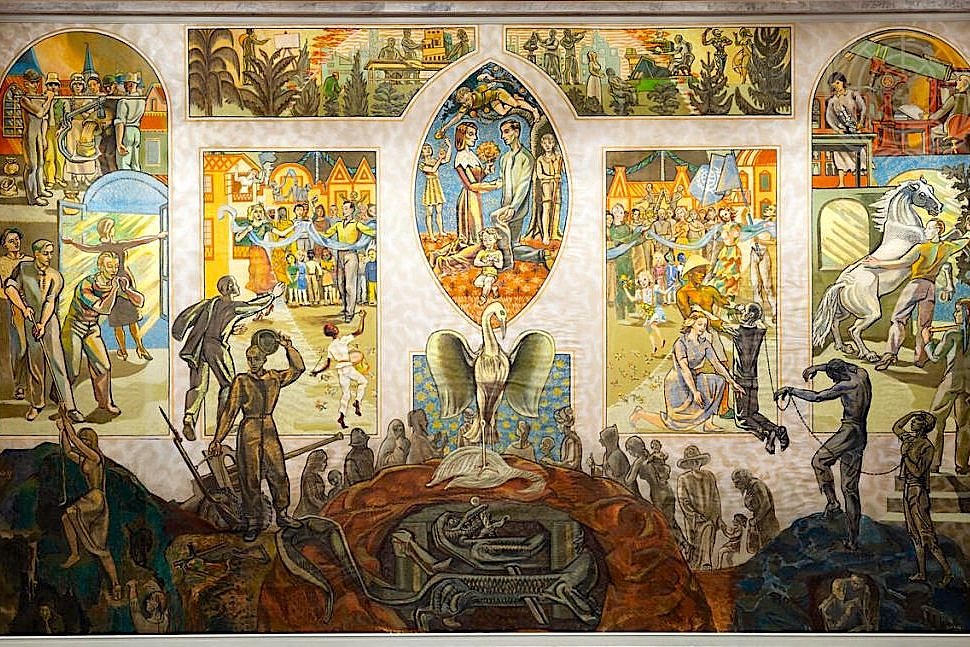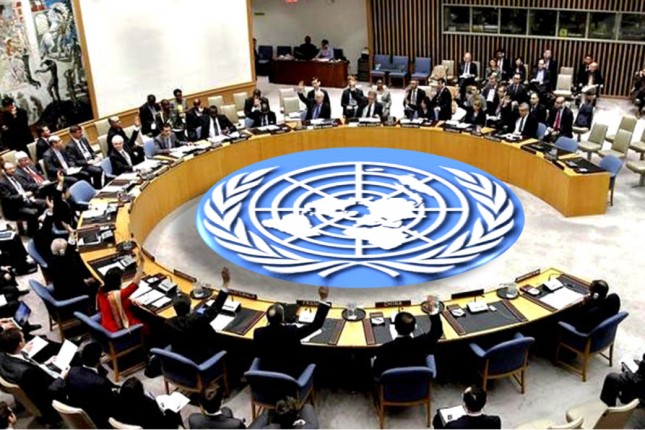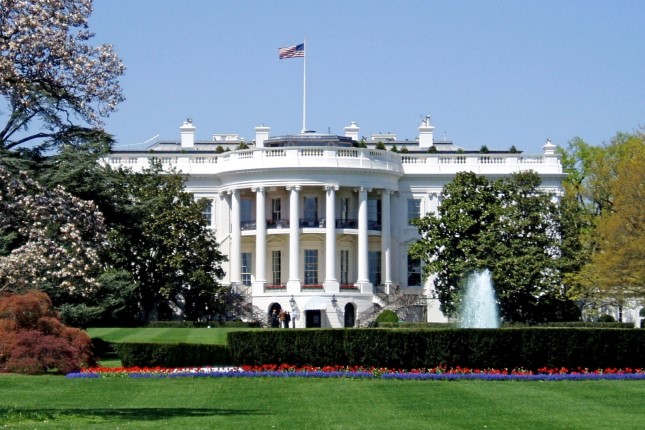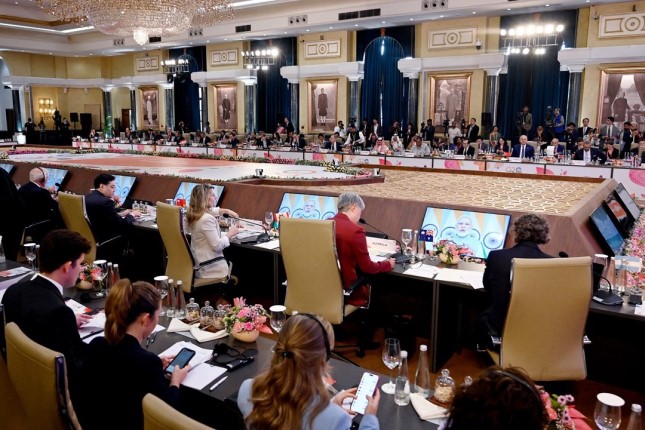One of Russia's most popular rock singers − 47-year-old Zemfira Ramazanova, the idol of her generation, whose albums have been actively purchased for almost a quarter of a century − decided to emigrate after the outbreak of war. With her friend and, although it is not officially announced, assumed partner Renata Litvinova, a 56-year-old actress and director, Zemfira has been living in Paris for about half a year.
The couple had enough reasons to emigrate: from Ramazanova's status of a "foreign agent" to their LGBTQ+ reputation, which, as sexual minorities fear, may soon become grounds for defeat in rights in Russia. However, "objective reasons" or anti-Russian activity alone are often not enough for comfortable emigration − one must also share the money while they have it.
Zemfira received the status of a foreign agent for her anti-war statements during a concert in Cyprus in October 2022: she wished for the end of Russia's war in Ukraine and sang the song "Don't Shoot". A month after receiving foreign agent status, Zemfira released a music video for her song PODNHA, where she called her homeland "sick", "thinned out", and "numb". Meticulous journalists started looking for evidence that Ramazanova had already officially obtained French citizenship.
Several tier-2 and tier-3 news websites wrote that Zemfira allegedly founded a French company "in the field of performing arts" and registered it in the register of the Commercial Court of Paris, and − again allegedly − in the extract from this register in the column "Nationality" the singer has Française. However, the evidence confirming this information − for example, scans of documents − has not yet appeared on the Internet. Ramazanova herself and her friend Renata Litvinova deny having citizenship, i.e. the official status of full citizens of France. Russian Telegram channels have clarified the situation: there is no citizenship (yet), but there is a permanent residence permit.
However, obtaining permanent status instead of a temporary residence permit under the LGBTQ+ Community quota was also not easy. And it is not only because after receiving income on the territory of France, they began to pay taxes to the French treasury. According to journalists, they were helped to achieve permanent status by a "confirmation letter" from "Ukrainian friends", an official paper from the Ukrainian embassy in France.
Telegram channels claim that Ramazanova and Litvinova are sponsors of the Ukrainian armed forces, as they have pledged to transfer EUR 500,000 annually to support the Ukrainian army and EUR 25,000 monthly to support Ukrainian refugees in France. For this, they were allegedly guaranteed free movement in the territory of the European Union and free creative self-realization without any claims from European law enforcers.
Subsequently, the couple has a chance to get a full French passport under the naturalization program − for this they will need to live in France for more than 181 days within three years. The friends have a place to live: according to rumors, their prestigious apartment in Paris is paid for by admirers of their work from the Russian criminal elite.
However, they are not the only ones who try to "buy" their status or any preferences by donations in favor of Ukraine. The Columnist has already repeatedly written about donations from a Russian businessman-oligarch for intercession from Ukraine, which did not help him. However, that is a somewhat different, already oligarchic level.
Ukraine is also supported by other Russian-speaking artists and art workers who want to secure a place in the West, travelling to EU countries, the UK and the US. In a sense, many cultural figures are even in a better starting position than Litvinova and Ramazanova: their Jewish origin entitles them to an Israeli passport. However, they do even worse − they are not accepted and publicly humiliated because they do not have significant sums of money to pay, and no one really needs "creative support". Neither EU citizens from the former Soviet republics (the so-called Baltic states) nor Ukrainian refugees in Europe want to accept Russian-speaking cultural workers as equals.
Recently, "pro-Ukrainian culture activists" have turned out to be the anti-heroes of a series of unpleasant public incidents, which expressed the negative attitude of EU citizens towards them.
For example, in mid-May in the Lithuanian capital Vilnius, 64-year-old satirical writer Viktor Shenderovich, a well-known Russian critic of the authorities, was doused with ketchup by an activist wrapped in a Ukrainian flag when he tried to explain his position to the audience. A week later, University College London (UCL) cancelled Shenderovich's speech without explanation. And they did it in an extremely boorish form. According to the BBC, "the audience who came to the writer's performance was met by confused Shenderovich at the locked doors to the concert hall." As a result, he and a group of audience members headed to a nearby park to hold an open-air meeting.
In Estonia, 47-year-old Russian-speaking poet, writer and artist Linor Goralik was refused to speak at an event with Ukrainian poets. The reason is that the poetess is Russian-speaking. The fact that Goralik was born in Dnipropetrovsk (now Dnipro) in Ukraine and repatriated from there to Israel, of which she is a citizen, adds spice to the situation. She does not position herself as a Russian, actively raises funds to support the Ukrainian armed forces and Ukrainian refugees, publishes the anti-war Internet magazine ROAR, etc.
Israeli artists Tenno Pent Sooster and Sergei Bunkov were also out of business in Estonia. The National Museum of Estonia notified the duo that their exhibition, scheduled for 2024, had been cancelled. The official letter from the museum read: "The current international environment does not allow us to organize exhibitions with individuals who define themselves as Russian artists, regardless of their citizenship." By the way, Tenno Pent Sooster is the son of Estonian Julo Sooster, who was repressed in the USSR, and Jewish Lidia Serkhova, while Bunkov is a native of the Soviet Jewish Autonomous Region. Both have long since repatriated to Israel and are actively detaching from their ties to Russia. In Estonia, they were going to exhibit etchings with letters of the Hebrew alphabet. "Nothing Russian, just business."
Finally, Marat Gelman, a 62-year-old scandalous political campaigner, publicist and gallery owner, is in a similar tragic farce situation. In the 2000s, he helped Russian politician Sergei Kiriyenko in the elections and worked in the Ukrainian election headquarters of pro-Russian oligarch Viktor Medvedchuk and former president Viktor Yanukovych. After Russia annexed Crimea, Gelman, who holds Israeli and Moldovan passports, moved to Montenegro. Now he lives in Berlin, helps the AFU, received the status of a foreign agent in Russia, and is wanted by the Russian Ministry of Internal Affairs. Despite this, Ukrainian users constantly insult Gelman on his social media pages and unequivocally associate him with Russia.
One gets the feeling that no amount of subservient speeches with bows towards Ukraine, art exhibitions and performances, public cursing of the "prehistoric motherland" will help renegade cultural figures to become "their own" in the EU. Those who can, are still paying. They will probably be "milked" for over EUR 100,000 and then discarded to live in obscurity and ostracism.
